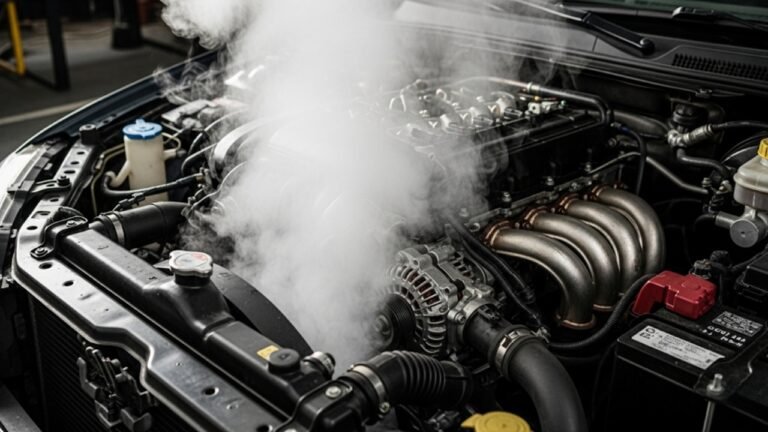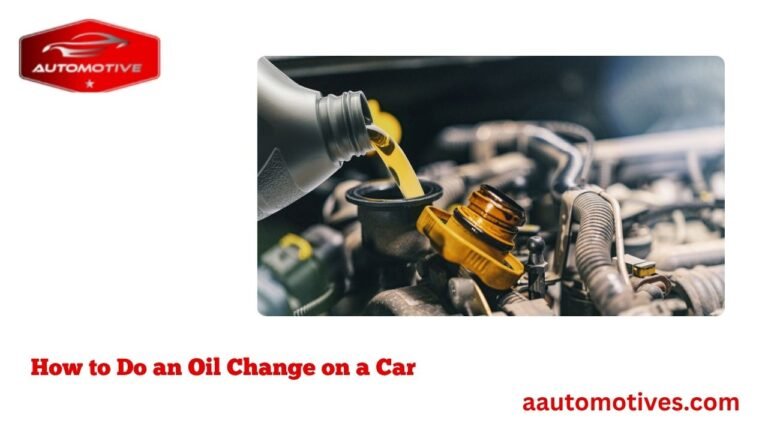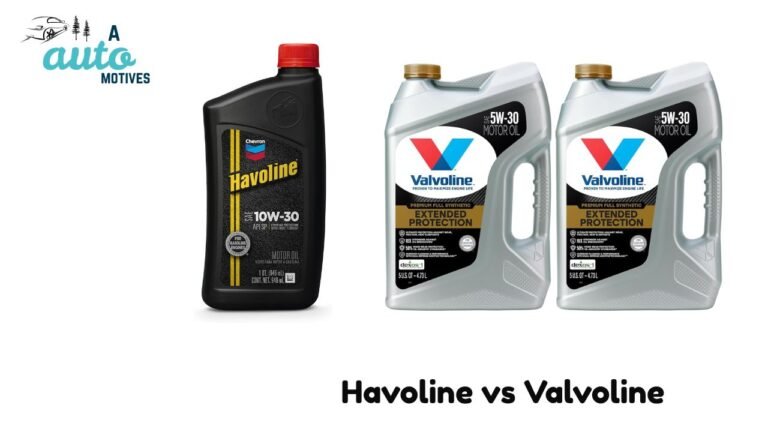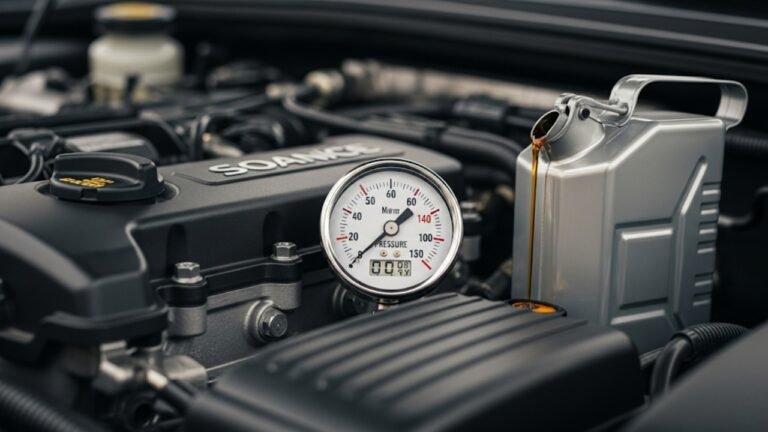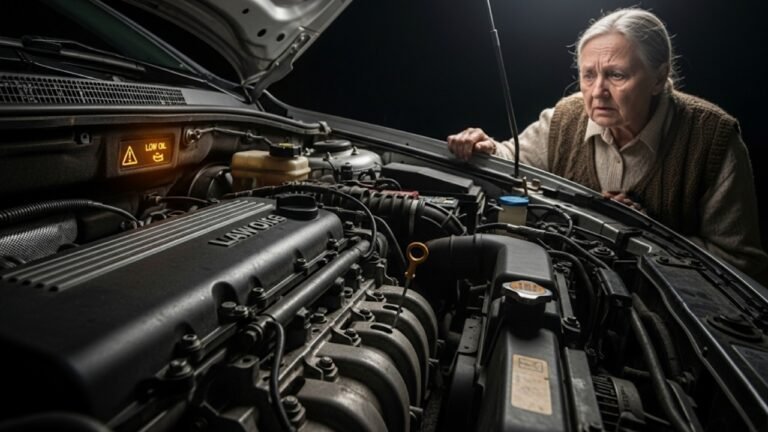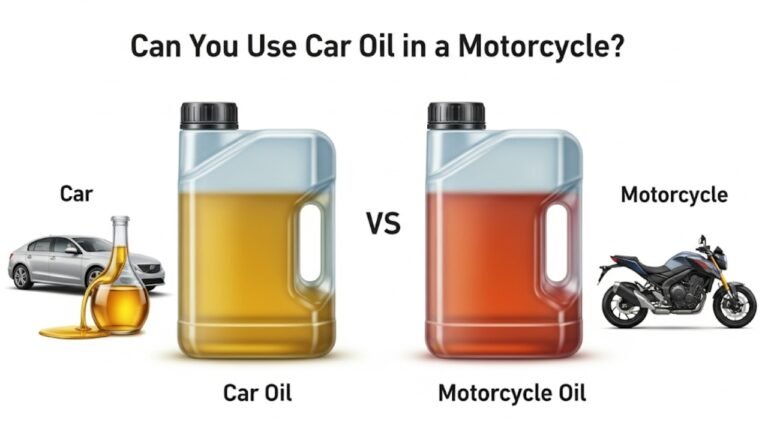What Happens If Your Car Runs Out of Oil?
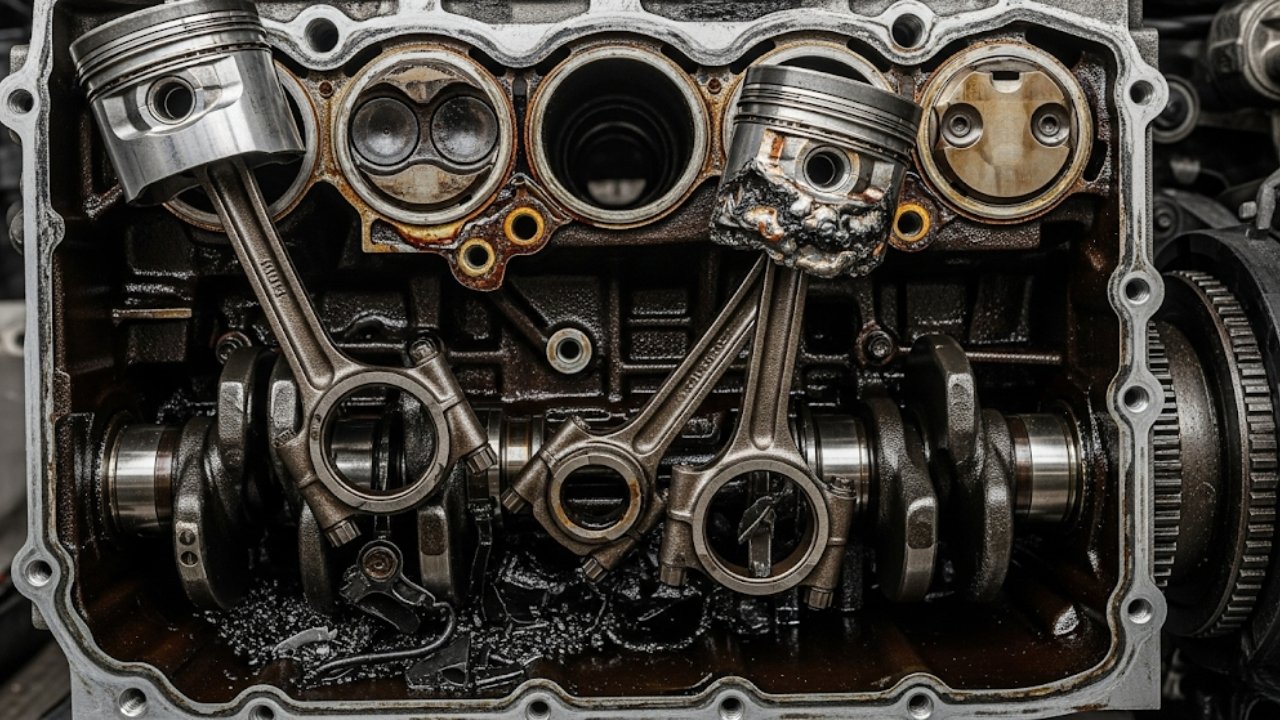
Ever been driving and suddenly noticed your oil light flicker? That tiny light could mean big trouble. You might think, “Eh, I’ll get it checked next week.” But trust me — that can be the difference between a smooth ride and a totaled engine.
I still remember the day my cousin’s car gave up on a rural highway. All because he didn’t know what happens if your car runs out of oil. His engine seized up, towing cost him more than he wanted to admit, and the repairs were a wallet-breaker.
This isn’t just a car problem — it’s a real-life headache. So, let’s break it down and explore why engine oil is the lifeblood of your vehicle, what goes wrong when it’s gone, and how to avoid ending up stranded like my cousin.
In This Article
- 1 Why Engine Oil Is So Important
- 2 What Happens If Your Car Runs Out of Oil While Driving?
- 3 Signs Your Car Is Running Low or Out of Oil
- 4 Real-Life Consequences: How Bad Is It Really?
- 5 Personal Story: A Costly Mistake I’ll Never Repeat
- 6 How Long Can You Drive Without Oil Before Damage Occurs?
- 7 Why Some Cars Run Out of Oil Faster Than Others
- 8 Can You Fix an Engine After Running Out of Oil?
Why Engine Oil Is So Important
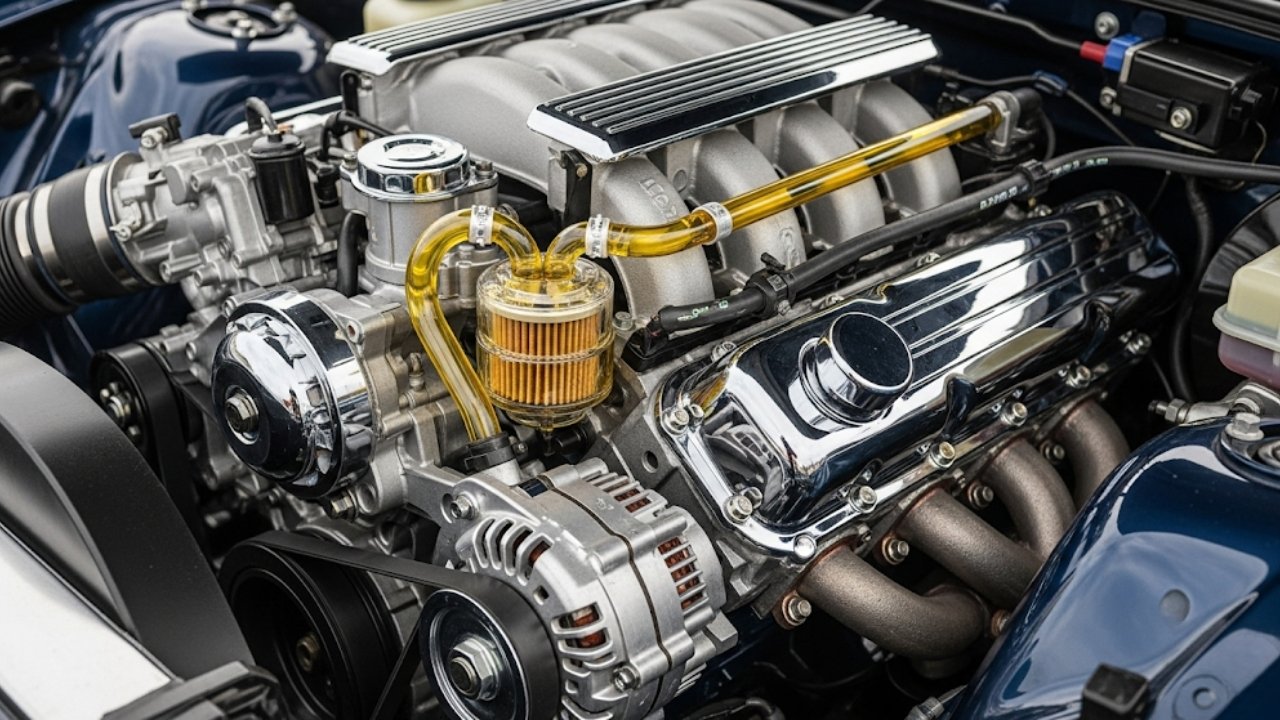
Engine oil isn’t just a liquid — it’s protection. It:
-
Lubricates moving parts to reduce friction
-
Cools engine components by carrying heat away
-
Cleans by picking up dirt and metal particles
-
Seals tiny gaps between pistons and cylinder walls
-
Prevents rust and corrosion
Without oil, metal rubs against metal. Friction increases, heat builds up, and components wear out — fast.
That’s why running out of oil is like asking your engine to self-destruct.
Main keyword usage: When people ask, “what happens if your car runs out of oil,” the short answer is — catastrophic engine damage.
What Happens If Your Car Runs Out of Oil While Driving?
Let’s be honest. Most of us don’t check our oil often. We trust the oil change sticker or a dashboard alert. But if you’re out on the road and your car runs out of oil, things go downhill quickly.
Here’s a step-by-step of what might happen:
-
Oil light comes on – This is the first warning. It’s your car screaming, “Help me!”
-
Engine noise increases – You’ll hear knocking, ticking, or grinding. These are not normal sounds.
-
Temperature spikes – The engine starts overheating because nothing is cooling it.
-
Power loss – You may notice reduced acceleration or sluggish performance.
-
Engine seizes – Metal parts get so hot and damaged, they weld together. This can happen within minutes.
-
Total engine failure – At this point, your engine may be ruined beyond repair.
Once the oil is gone, your engine’s lifespan is measured in minutes, not miles. You could be driving smoothly, and suddenly — boom. Engine death.
Signs Your Car Is Running Low or Out of Oil
It’s better to notice these signs early than pay the price later. Here are some red flags to look for:
-
Burning oil smell from the hood
-
Smoke from the tailpipe (blue or gray)
-
Engine knocking or loud ticking sounds
-
Dashboard oil light stays on or flashes
-
Sluggish performance
-
High engine temperature
If you spot any of these, pull over safely and check your oil level. Even a few drops left in the system aren’t enough to protect your engine.
Real-Life Consequences: How Bad Is It Really?
Still wondering what happens if your car runs out of oil and you ignore it? Let’s get real.
Here’s a table showing what might break — and what it could cost you:
| Component | Potential Damage | Estimated Repair Cost (USD) |
|---|---|---|
| Piston & Cylinder Wall | Metal scarring & cracks | $1,000 – $3,000 |
| Crankshaft Bearings | Overheating, loss of rotation | $1,500 – $4,000 |
| Camshaft | Broken lobes | $1,200 – $2,500 |
| Full Engine Replacement | Complete seizure | $4,000 – $10,000+ |
Once metal parts start to grind, the engine is on borrowed time. The worst part? Insurance usually won’t cover oil neglect. You’ll be footing the bill yourself.
Personal Story: A Costly Mistake I’ll Never Repeat
Let me share a quick personal story. Back in college, I had a 2006 Honda Accord. I skipped one oil change. Just one. Thought I could push it a few more miles.
One night, while driving home, I heard a ticking sound. I ignored it.
Minutes later — bang. The engine stalled. I coasted to the side of the road and waited 2 hours for a tow. Diagnosis? Engine failure due to no oil. The shop said it was bone dry.
It cost me $2,300 to replace the damaged parts. I had to borrow money, skip summer plans, and worst of all, I knew it was my fault.
Moral of the story? Oil changes are cheap. Engines are not.
How Long Can You Drive Without Oil Before Damage Occurs?
There’s no magic number. But generally, without oil, your car can only run for 5 to 10 minutes before serious damage begins.
In ideal lab conditions, it might stretch a bit. But in real-world driving — with hills, traffic, and heat — your engine could seize faster than you expect.
Once the oil pressure drops to zero, the clock starts ticking.
Even if your car feels fine, internal damage may already be happening. You don’t always hear the problem before it’s too late.
Why Some Cars Run Out of Oil Faster Than Others
Some engines are just thirstier. Older cars or high-mileage engines may:
-
Burn oil internally due to worn rings or seals
-
Leak oil through gaskets and drain plugs
-
Consume oil at higher RPMs
If you’ve got an older vehicle, check your oil every 2-3 weeks, not just at service intervals.
Also, synthetic oil might last longer, but it still runs out eventually. It’s not magic — it needs checking too.
Can You Fix an Engine After Running Out of Oil?
Good question. The answer? Maybe.
If you catch the problem early, you might get lucky. Sometimes topping off oil and replacing filters can help. But if your engine made loud noises or stopped running, repairs will be expensive.
Common fixes include:
-
Replacing damaged bearings
-
Honing or replacing cylinders
-
Installing a new oil pump
-
Full engine rebuild or replacement
Here’s the catch: these aren’t DIY jobs unless you’re a pro mechanic. And even then, costs add up fast. Prevention is way cheaper than repair.

